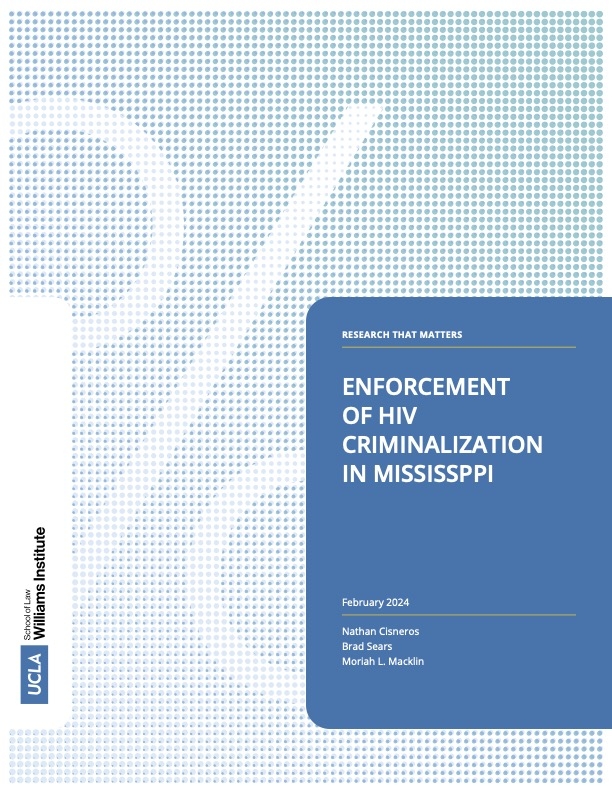
HIV criminal laws lopsided impact on Black men in Mississippi
A new report by the Williams Institute at UCLA School of Law finds that at least 43 people in Mississippi were arrested for HIV-related crimes between 2004 and 2021. Half of all arrests in the state happened between 2017 and 2021.
The HIV epidemic and Mississippi’s HIV-related criminal laws disproportionately impact men, and Black men in particular. Men make up 49% of Mississippi’s population, 71% of people living with HIV (PLWH), and 72% of HIV-related arrests. Black men comprise 18% of the state’s population and 50% of PLWH. However, they make up 47% of HIV-related arrests.
Researchers analyzed data obtained from the Mississippi Department of Public Safety. Findings show that the enforcement of HIV criminal laws is concentrated around the state’s capital and most populous city, Jackson, and near the Gulf Coast. Almost 20% of arrests occurred in three counties: Harrison (15%), Hinds (13%), and Lamar (11%).
HIV criminalization is a term used to describe laws that either criminalize otherwise legal conduct or increase the penalties for illegal conduct based on a person’s HIV-positive status. Nearly two-thirds of U.S. states and territories currently have laws that criminalize people living with HIV.
Mississippi has two HIV criminal laws. The knowing exposure law makes it a felony to knowingly expose another person to HIV, hepatitis B, or hepatitis C and is punishable by up to 10 years in prison and/or a $10,000 fine. Mississippi’s endangerment by bodily substance law makes it a misdemeanor to attempt to expose or expose anyone at a correctional facility to bodily fluids. However, if someone knows their HIV or hepatitis status, the crime is upgraded to a felony punishable by 3 to 10 years in prison and/or a $10,000 fine.
“Mississippi’s criminal laws do not require the actual transmission of HIV, the intent to transmit, or even conduct that can lead to the transmission of HIV,” said lead study author Nathan Cisneros, HIV Criminalization Project Director at the Williams Institute. “We now have medical treatments that wholly eliminate the risk of transmitting HIV through sex, yet these advances are not reflected in Mississippi’s laws.”
Mississippi’s 2021 Ending the HIV Epidemic Plan called for reform of the state’s HIV criminal laws to align with modern HIV medicine.
“HIV criminal laws perpetuate stigma and can discourage testing and treatment,” said co-author Brad Sears, Founding Executive Director at the Williams Institute. “That’s why many national and state organizations, including the American Medical Association, have called for a repeal of these laws.”
This report is part of a series of reports examining the ongoing impact of state HIV criminalization laws on people living with HIV.







